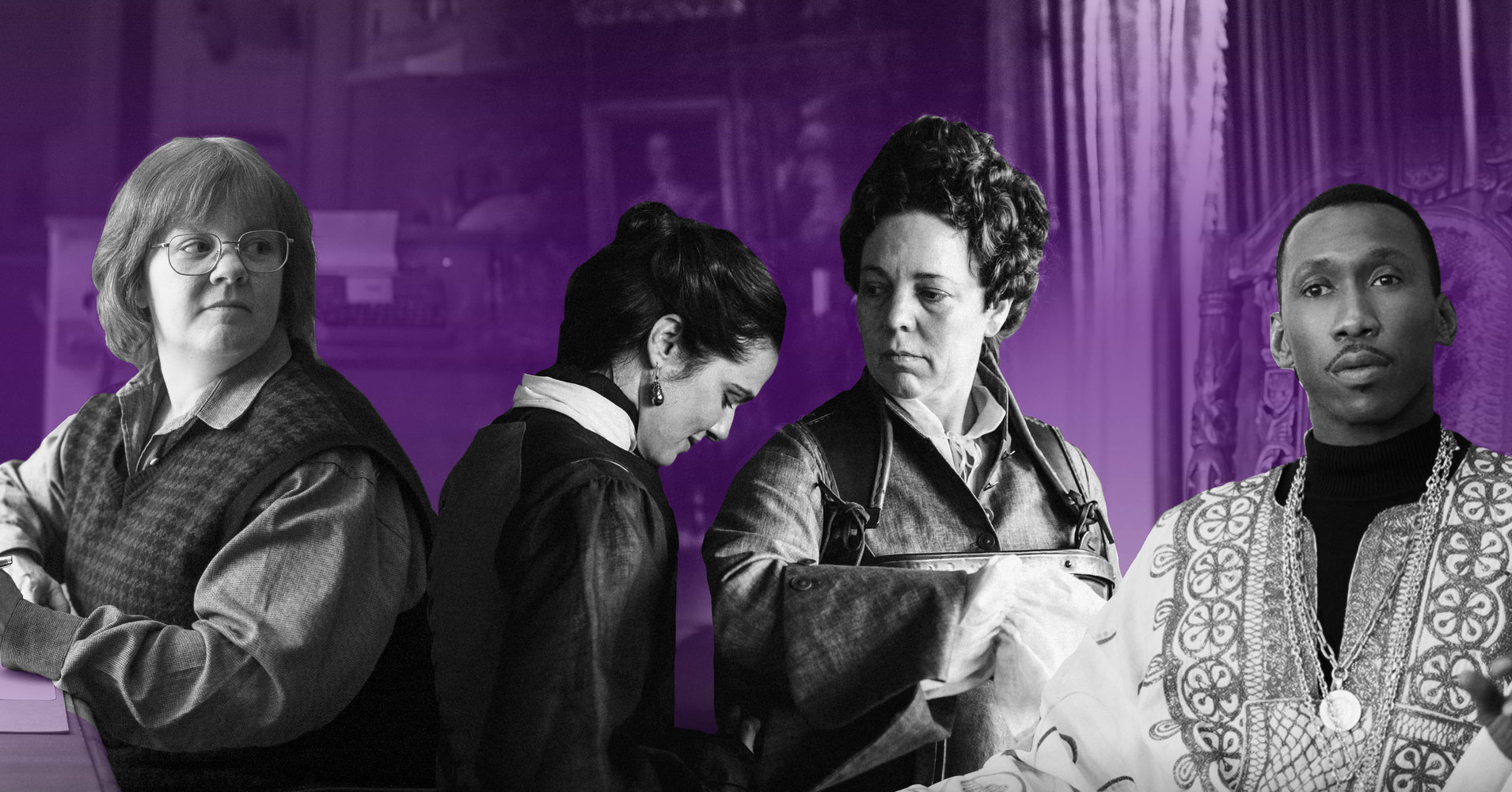[ad_1]
It takes half an hour for anything gay to happen in “The Favourite.” Then, with one unexpected kiss, it goes from a farce about Queen Anne’s court to a lesbian rendition of “All About Eve.”
About the same stretch of time passes until “Can You Ever Forgive Me?” protagonist Lee Israel (Melissa McCarthy) casually reveals her sexuality by using female pronouns when describing a failed relationship.
And in “Green Book,” concert pianist Don Shirley’s (Mahershala Ali) attractions to men are practically a footnote ― one that nonetheless provides keen insight into the lonely life he led in the early 1960s.
None of these movies wave rainbow flags like a narrative stronghold. Pacesetters in the year’s ongoing awards derby, they focus on gay figures who aren’t characterized predominantly by their sexuality: a British queen, a best-selling author, a celebrated performer. You might not know any of them are gay until well past the opening credits ― and, in a refreshing twist, that makes their stories all the more potent.
Traditionally, when Hollywood makes a gay movie, it’s through the lens of coming out or societal prejudices, the most obvious trademarks in the queer experience. This year’s other gay movies all meet that prerequisite: “Love, Simon” (a teenager accepts his sexuality), “Disobedience” (a onetime Orthodox Jew returns to the community that condemns her sexuality), “The Miseducation of Cameron Post” (a teenager’s parents send her to conversion therapy), “Boy Erased” (a teenager’s parents send him to conversion therapy).
Those are, more or less, easy conceits, or at least comfortable ones. They instruct us when to swoon or how hard to cry, and all who partake get to pat themselves on the back for feeling the correct emotions. Furthermore, the characters’ sexuality defines the films’ marketing campaigns, inviting the Important Gay Movie designation that results in pat taglines like “Everyone deserves a great love story” and “The truth cannot be converted.” By the time people buy a ticket or hit the Rent button, they’ve essentially already subscribed to the affiliated messaging.
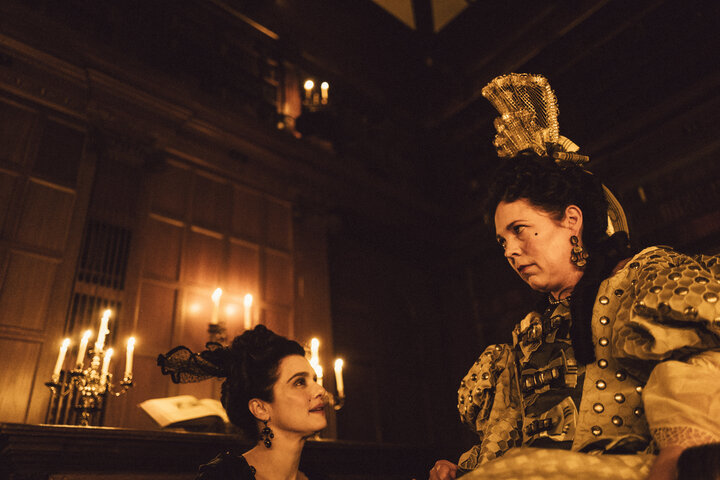
But “The Favourite,” “Can You Ever Forgive Me?” and ― to a lesser degree ― “Green Book” don’t settle for such manipulations. They introduce their protagonists not as gay outsiders or Hollywood bellwethers but as everyday humans moving through the world with idiosyncratic amalgams of triumphs and struggles. Of course, because their promotional bids mostly omit any gay subtext, they risk shoving the movies into the closet, as a recent Into essay articulated. But I think there’s something less insidious at work. Here, queerness is a complex ecosystem instead of a badge wielded to announce progressiveness.
“The Favourite” is the sneakiest of the bunch. The latest satire from Greek humorist Yorgos Lanthimos, who skewered the nuclear family structure in “Dogtooth” and coupledom in “The Lobster,” introduces a sapphic structure right as we’re settling into its acerbic portrait of an ill-prepared monarch and her ever-feuding subjects ― in other words, right as we’re least expecting it. Embroiled in a controversial war with France, Britain’s Queen Anne (Olivia Colman) maintains a tight companionship with Sarah Churchill (Rachel Weisz), a high-ranking military officer’s wife who counsels Anne on matters of appearance, comportment and Parliament alike. Sarah steers Anne’s verdict on whether to raise taxes to extend the war, and we in turn question which of them truly holds the power. We know the two are close, as the film opens with Anne giving Sarah a castle, but we have no idea how close.
It’s a juicy, if otherwise ordinary, kinship, at least until the fresh-faced servant Abigail (Emma Stone) observes the pair giggling through the palace halls late one night. If that weren’t enough to shatter the expectation of austere manner from a queen, what happens next comes straight out of left field (especially for those unversed in speculations about the real Queen Anne’s sexuality). In a dim chamber where Abigail hides with only a candle to light her way, she witnesses Sarah lean toward Anne and kiss her. It’s not delicate or tentative like a romance in bloom, nor is it some sort of political strategy. No, this is a kiss shared by two people who very much enjoy kissing ― a full-on macking session, if you will, followed by a command from a ruler to her lover: “Fuck me.”
The closet hasn’t disappeared from this subtext, but in a clever subversion, “The Favourite” renders any conventional coming out unnecessary. From there, we’re off to the races. “The Favourite” becomes super–gay, and yet it’s still not a movie about being gay, at least not in the typical Hollywood sense. Once she’s versed in her boss’ carnal desires, Abigail pinpoints seduction as a way to earn a place at the queen’s side, pitting her against Sarah as both vie for Anne’s premier affections. On the surface, they’re appealing to her erotic interests, especially Abigail, who is desperate to escape servanthood. But nestled in that power struggle is an affecting portrait of a woman whose romantic entanglements help her navigate nobility’s doldrums and life’s disappointments (including 17 failed pregnancies with her late husband, each lost baby represented by a pet rabbit).
Anne is, first and foremost, an image-conscious woman unsure how to lead a war-torn kingdom but certain of how to enjoy privilege’s delicacies. That she is is gay (or bisexual, perhaps) informs the events that unfold, but it doesn’t dictate her entire narrative.
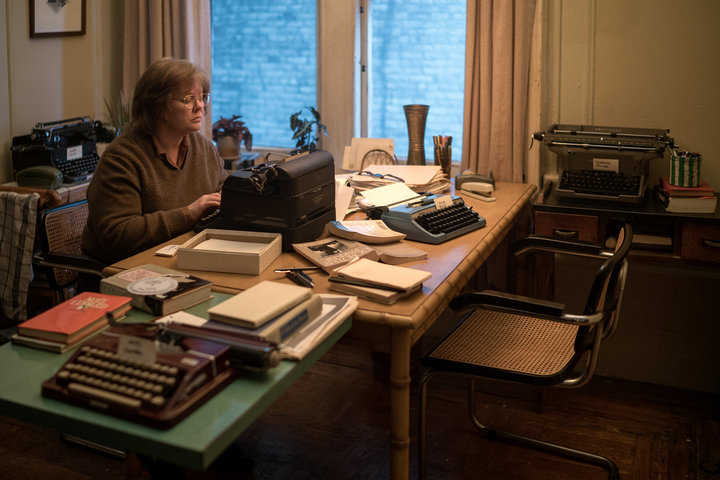
The same can be said for Lee Israel, the biographer at the center of the lovely 1990s-set dramedy “Can You Ever Forgive Me?” directed by Marielle Heller (“The Diary of a Teenage Girl”) and written by Nicole Holofcener (“Enough Said”) and Jeff Whitty (“Avenue Q”), based on a true story. Just as we first meet Anne as a befuddled queen, we meet Lee as a once-successful author whose agent (Jane Curtin) won’t return her phone calls or greenlight her esoteric pitches. Lee has fallen on hard times, unable to pay her rent or her aged cat’s vet bills. And as a tart-tongued loner, she has never had a vast support system, leaving a hole that’s only somewhat filled when a lowlife acquaintance (Richard E. Grant) with a similar sense of humor posts up next to her at happy hour. Only then do we learn, by way of simple conversation, that Lee is a lesbian.
Her gayness tells us a lot about Lee’s livelihood. We needn’t turn to a sociological report to know that outcasts are especially susceptive to loneliness, which might explain why she has a hard time letting people in and why she shies away from courtship. It provides a backdrop for the fabric of Lee’s existence, but so does her interest in vintage entertainers and her aversion to the ritzy literary elite. “Can You Ever Forgive Me?” tosses all those traits into a pot, stirring them together to create someone who can’t be reduced to any single attribute. (McCarthy’s fabulous performance helps too.)
When Lee starts forging correspondences between famous authors to earn cash, we triumph at her crimes because they are a victory for someone who needs one. Self-made loners, after all, are often unfairly discounted. At the same time, the movie is generous enough not to guide viewers through prescribed empathy. It let us feel conflicted about Lee, whose fiery temperament doesn’t make for easy company. In other words, it makes her a real character instead of a figurehead within culture’s heated dialogue about Hollywood representation. Like Queen Anne and her warring paramours, Lee’s sexuality colors who she is without relying on grand proclamations. It makes her solidarity with Grant’s boozehound — who is gay, homeless and absurdly charming — all the more meaningful.
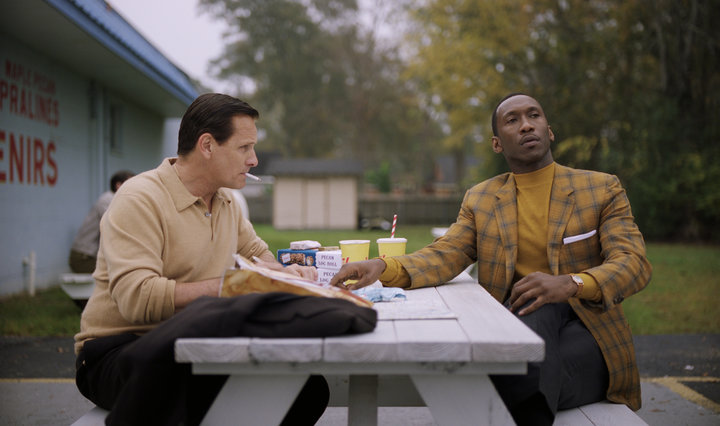
Compared with “Can You Ever Forgive Me?” and “The Favourite,” “Green Book” is a bit trickier. Also based on a true story, Peter Farrelly’s crowd-pleaser follows a macho New York nightclub bouncer (Viggo Mortensen) who takes a two-month gig chauffeuring the starchy black jazz pianist Don Shirley during his 1962 tour through the segregated Deep South. We immediately learn that Don is accustomed to performing for crowds of wealthy white people who won’t let him use their restrooms, but it isn’t until late in the film that we find out he also routinely cruises bathhouses. Gold-trimmed caftan excepted, there’s no indication of Don’s sexual preference until police find him with another man in a Georgia steam room.
“Greek Book” doesn’t delve much further into Don’s gay interiority, which comes as no surprise: Its portrayal of midcentury racism hinges on a simple-minded white perspective, so of course the straight people who made the film don’t quite know what to say about queerness either. But at least they don’t reduce Don’s private life to platitudes about tolerance. A different version might have made that steam-room liaison more of an inciting incident; instead, it’s a sidebar at best.
I won’t argue with anyone who accuses Farrelly, known for rowdy comedies like “Dumb and Dumber” and “There’s Something About Mary,” of employing too much discretion. Still, there’s something honorable in the way “Green Book” treats the ordeal as a mere chapter in the life of a minority well groomed in adversity. Yes, the movie demands our compassion as Mortensen’s white savior is called to retrieve Don from the bathhouse. But the aftermath is as matter-of-fact as Don himself, refusing to make a fuss over the fact that he ever banged a dude at all. However clichéd its portrayal of race may be, “Green Book” handles Don’s sexuality with as much grace as it can muster.
Overall, this decade has given us exemplary gay films — “Beginners,” “Love Is Strange,” “Weekend,” “Pariah,” “Carol,” “Moonlight,” “(BPM) Beats per Minute,” “Call Me by Your Name,” “God’s Own Country,” “Spa Night.” But most of them fixate on coming out (or being unable to do so) and how the world responds to that. Some get happy endings, some don’t. Either way, the protagonists are positioned against the mainstream culture they struggle to defy, and that’s often where their sagas begin and end.
It’s easy to see why. Gay people spend their entire lives coming out, in big and small ways, time and again, hoping no one will bat an eye. And without a bounty of precursors in cinema history, of course filmmakers are attracted to that exploration. A major studio giving today’s teens their version of a John Hughes rom-com in the form of “Love, Simon” is, in many ways, a boon. But these tales have limitations. Even at their most nuanced, they are often concerned only with the trials of self-acceptance.
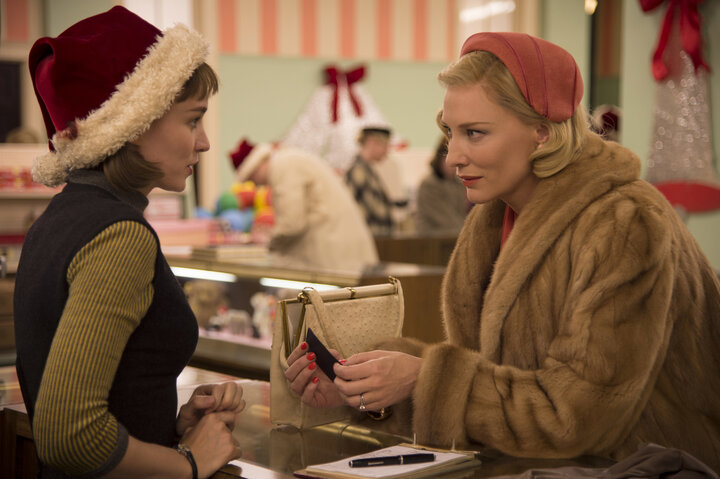
Even when these movies conclude on hopeful notes, like “Carol” and “Moonlight,” we question how comfortable the characters are in their own skin, whether they’ll truly be able to accept themselves. There’s great poignancy in that tug of war, but at a certain point, it’s nice to see denouements that treat gayness as more than a long quest toward contentment. Put differently, it’s nice to see gay narratives that involve something other than first love or educating heterosexuals ― even if that something isn’t splashed across posters and trailers.
The endings of “The Favourite,” “Can You Ever Forgive Me?” and “Green Book” don’t shy away from melancholy. But just as they declined to advertise their characters’ sexuality at the outset, they also don’t make it a concluding preoccupation. They involve power struggles, professional setbacks and personal ambitions, and they also happen be flagrantly, beautifully gay ― a step toward telling stories that aren’t rooted only in identity politics.
Fall’s queer trio ― if you haven’t noticed, I’m leaving the misguided “Bohemian Rhapsody” out of this altogether ― manage to feel revelatory without needing the Important Gay Movie hallmark. And that’s exactly why they’re important.
CORRECTION: A previous version of this movie mischaracterized Jane Curtin’s character in “Will You Ever Forgive Me?” as Lee Israel’s publisher rather than agent.
[ad_2]
Source link

